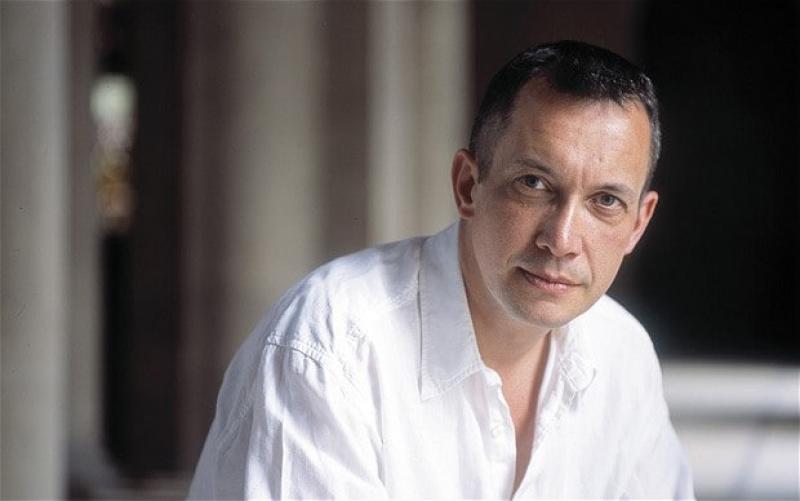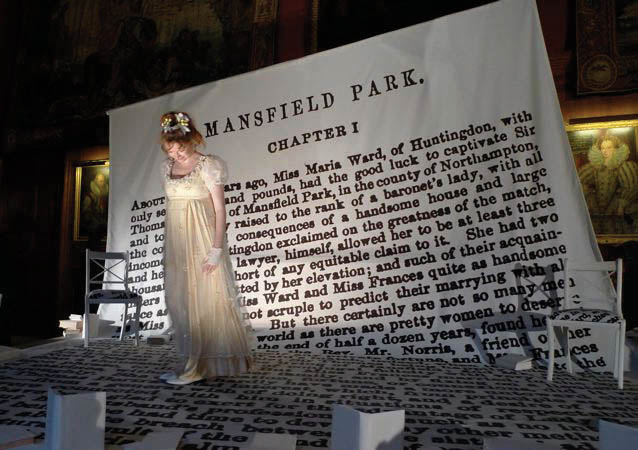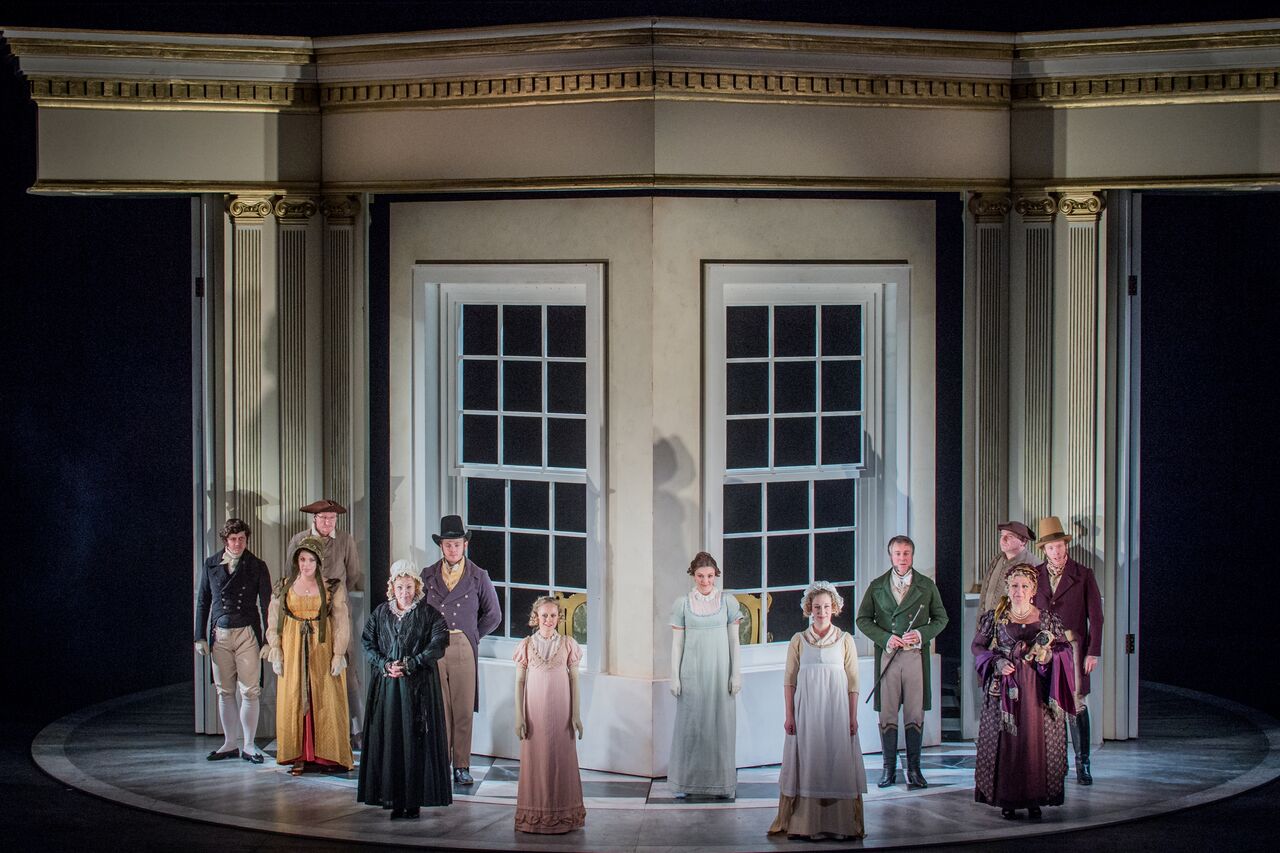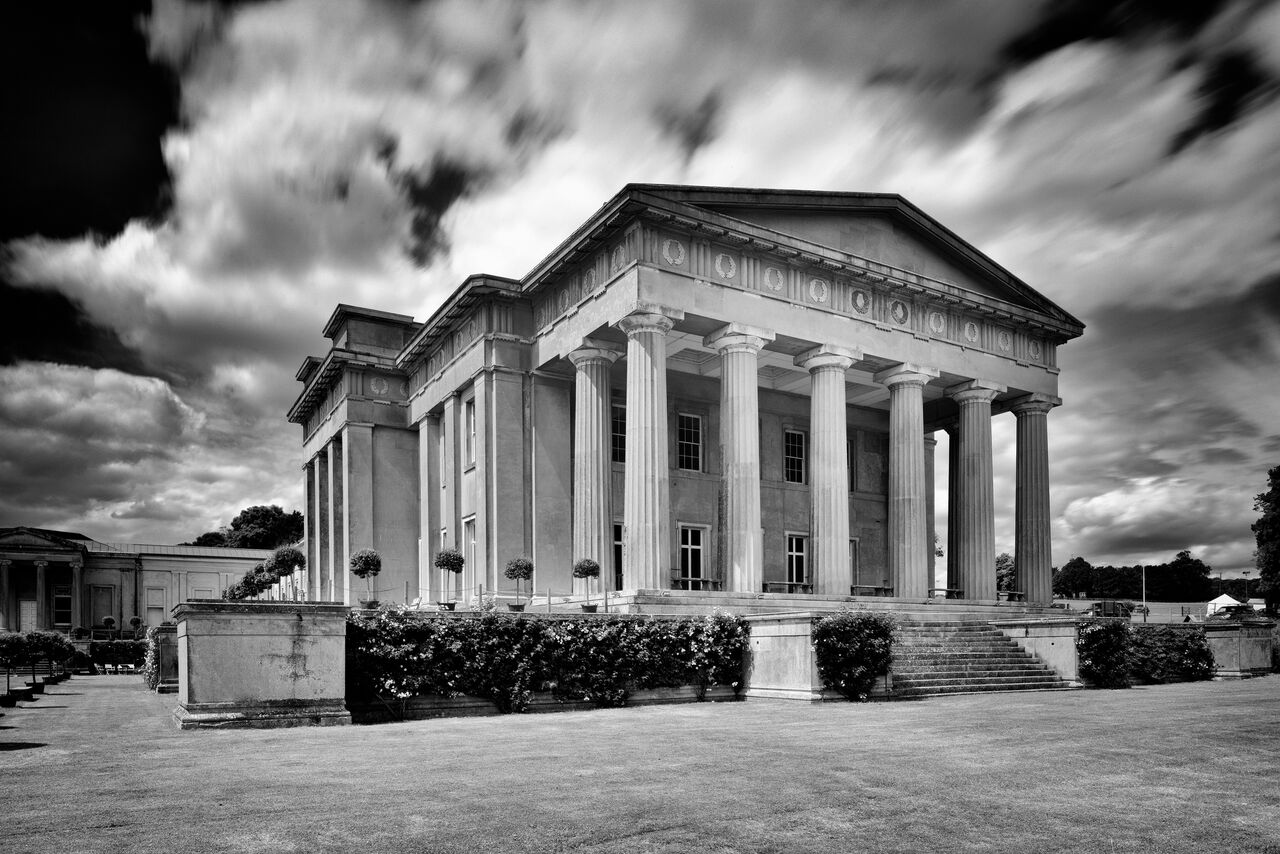'Fanny Price’s pained silences gave me the impulse to write music for her' | reviews, news & interviews
'Fanny Price’s pained silences gave me the impulse to write music for her'
'Fanny Price’s pained silences gave me the impulse to write music for her'
Jonathan Dove on the genesis and full orchestral premiere of his opera Mansfield Park

When I first read Mansfield Park, some 30 years ago, I heard music. That doesn’t always happen when I read, and it certainly didn’t happen when I read other novels by Jane Austen. There is something about this particular book that provoked musical ideas.
Of course, music is often involved in Austen’s stories: there are dances and private concerts, many of her heroines play the piano (as did Austen herself) and some of them sing, while in Mansfield Park, Mary Crawford plays that dangerously romantic instrument, the harp.
But while I was reading the novel, what elicited music was not the literal presence of instruments in the story, but something beneath the surface. I think it was the way the heroine, Fanny Price, so often suffers in silence. There are clues to her feelings, but unlike the lively Emma Woodhouse, or the high-spirited Elizabeth Bennet, she does not express them. Her reticence invited music, as a way of revealing those hidden emotions.
Two scenes particularly stand out as especially poignant, and musical. Fanny’s beloved Edmund is distracted and entranced by Mary Crawford, but one evening he joins Fanny to gaze out of the window at the stars. Fanny is overjoyed to be reunited with him – but then Mary Crawford starts to sing, and Edmund is unconsciously drawn back to her, away from the window where Fanny now stands alone, looking out at the stars. This follows a scene where Fanny helplessly watches Edmund going off into a wilderness with Mary Crawford, leaving Fanny alone and silent on her bench. These scenes have haunted me for years: Fanny’s pained silences gave me the impulse to write music for her. (Pictured below: scene from Heritage Opera's staging of Mansfield Park) Interestingly, I’m not the first composer to think that Mansfield Park could make an opera: Benjamin Britten got as far as working out a scenario, and came to the same conclusion that Fanny Price should be a mezzo-soprano. He was so disturbed, however, by speculation about the work-in-progress that he ended up writing Albert Herring instead.
Interestingly, I’m not the first composer to think that Mansfield Park could make an opera: Benjamin Britten got as far as working out a scenario, and came to the same conclusion that Fanny Price should be a mezzo-soprano. He was so disturbed, however, by speculation about the work-in-progress that he ended up writing Albert Herring instead.
When I fantasised about making an opera out of Mansfield Park, I didn’t picture it in an opera house: I always imagined it happening in a stately home, accompanied just by a piano. Singing around the piano is an entertainment which Austen would immediately have recognised. And a central scene in the novel involves a group of young people rehearsing a play in the drawing-room of a country house.
Over the years, I have often mentioned this fantasy to people. Then in 2006, while rehearsing The Enchanted Pig with Nuala Willis and John Rawnsley at the Young Vic, John told me about the newly-formed Heritage Opera, of which he was a patron. This company specialised in taking opera to stately homes and historic buildings, and it dawned on me that this might be the perfect company to produce – and even commission – the opera of Mansfield Park. Commissioning a new opera is a challenge for any company, let alone one devoted to small-scale productions, so I am deeply grateful to Chris Gill and Heritage Opera for taking on the enormous task, and making it possible for me to realise my dream. The original version of the opera was premiered at Boughton House in 2011. Pictured below by Robert Workman: the cast of the present Grange Festival production.

Because it was to be performed in an intimate setting, there was no need to work up the narrative into something more like grand opera; we could enjoy the subtleties of the novel in close-up. Alasdair Middleton made some radical decisions in writing the libretto: Tom would not appear, and there would be no scenes in Portsmouth. This made it possible to tell the Cinderella-like story in a single evening with a cast of 10. Quite a lot of the time, the characters sing in Jane Austen’s own words. The music does not pretend to be exactly of the period, but I hope it suggests to 21st-century ears something of the early 1800s, and the unique world of Jane Austen.
I was pleased with the four-handed piano accompaniment: it suggested something of the music-making of the period, and — in a chamber space— provided ample support for the voices.There were never any balance problems, the singers could easily be heard even singing softly, so a very intimate performance could be achieved; and the lack of sustained sound in the accompaniment was made up for by all the singing, often in ensembles. In its original chamber form, the opera has already enjoyed several UK productions, as well as productions in the USA and Australia. The original touring production played to audiences of 100 or so, in the ballrooms and large halls of stately homes. But the opera has also been performed in theatres, and sometimes, watching it in a larger auditorium, I found myself wondering what it would be like with an orchestra. One or two friends encouraged me to consider this – and soon as I started thinking about it, I could hear a little chamber orchestra, around a dozen players – still with a piano playing a prominent role, but using all the instrumental colours of the period. I realised that, unconsciously, while I was composing for piano, I had been imagining other instrumental colours all along. I had even imagined musicians in a distant room practicing dances for the ball - a tricky thing to convey when all you have on stage is a single piano! To orchestrate the opera would release those latent ideas, and make them tangible.
In its original chamber form, the opera has already enjoyed several UK productions, as well as productions in the USA and Australia. The original touring production played to audiences of 100 or so, in the ballrooms and large halls of stately homes. But the opera has also been performed in theatres, and sometimes, watching it in a larger auditorium, I found myself wondering what it would be like with an orchestra. One or two friends encouraged me to consider this – and soon as I started thinking about it, I could hear a little chamber orchestra, around a dozen players – still with a piano playing a prominent role, but using all the instrumental colours of the period. I realised that, unconsciously, while I was composing for piano, I had been imagining other instrumental colours all along. I had even imagined musicians in a distant room practicing dances for the ball - a tricky thing to convey when all you have on stage is a single piano! To orchestrate the opera would release those latent ideas, and make them tangible.
The Grange Festival commissioned this new, orchestral version to mark the bicentenary, this year, of Jane Austen’s death. (Curiously, she died on my birthday.) The Grange, in Northington, is just a few miles from her birthplace, Steventon. Opera has been performed there for nearly 20 years, and an opera house was built there 15 years ago (the main house pictured above by Joe Low). So it really is the perfect place, and time, for the world premiere of the new, orchestral version of Mansfield Park.
Share this article
The future of Arts Journalism
You can stop theartsdesk.com closing!
We urgently need financing to survive. Our fundraising drive has thus far raised £49,000 but we need to reach £100,000 or we will be forced to close. Please contribute here: https://gofund.me/c3f6033d
And if you can forward this information to anyone who might assist, we’d be grateful.

Subscribe to theartsdesk.com
Thank you for continuing to read our work on theartsdesk.com. For unlimited access to every article in its entirety, including our archive of more than 15,000 pieces, we're asking for £5 per month or £40 per year. We feel it's a very good deal, and hope you do too.
To take a subscription now simply click here.
And if you're looking for that extra gift for a friend or family member, why not treat them to a theartsdesk.com gift subscription?
more Opera
 Susanna, Opera North review - hybrid staging of a Handel oratorio
Dance and signing complement outstanding singing in a story of virtue rewarded
Susanna, Opera North review - hybrid staging of a Handel oratorio
Dance and signing complement outstanding singing in a story of virtue rewarded
 Ariodante, Opéra Garnier, Paris review - a blast of Baroque beauty
A near-perfect night at the opera
Ariodante, Opéra Garnier, Paris review - a blast of Baroque beauty
A near-perfect night at the opera
 Cinderella/La Cenerentola, English National Opera review - the truth behind the tinsel
Appealing performances cut through hyperactive stagecraft
Cinderella/La Cenerentola, English National Opera review - the truth behind the tinsel
Appealing performances cut through hyperactive stagecraft
 Tosca, Royal Opera review - Ailyn Pérez steps in as the most vivid of divas
Jakub Hrůša’s multicoloured Puccini last night found a soprano to match
Tosca, Royal Opera review - Ailyn Pérez steps in as the most vivid of divas
Jakub Hrůša’s multicoloured Puccini last night found a soprano to match
 Tosca, Welsh National Opera review - a great company reduced to brilliance
The old warhorse made special by the basics
Tosca, Welsh National Opera review - a great company reduced to brilliance
The old warhorse made special by the basics
 BBC Proms: The Marriage of Figaro, Glyndebourne Festival review - merriment and menace
Strong Proms transfer for a robust and affecting show
BBC Proms: The Marriage of Figaro, Glyndebourne Festival review - merriment and menace
Strong Proms transfer for a robust and affecting show
 BBC Proms: Suor Angelica, LSO, Pappano review - earthly passion, heavenly grief
A Sister to remember blesses Puccini's convent tragedy
BBC Proms: Suor Angelica, LSO, Pappano review - earthly passion, heavenly grief
A Sister to remember blesses Puccini's convent tragedy
 Orpheus and Eurydice, Opera Queensland/SCO, Edinburgh International Festival 2025 review - dazzling, but distracting
Eye-popping acrobatics don’t always assist in Gluck’s quest for operatic truth
Orpheus and Eurydice, Opera Queensland/SCO, Edinburgh International Festival 2025 review - dazzling, but distracting
Eye-popping acrobatics don’t always assist in Gluck’s quest for operatic truth
 MARS, Irish National Opera review - silly space oddity with fun stretches
Cast, orchestra and production give Jennifer Walshe’s bold collage their all
MARS, Irish National Opera review - silly space oddity with fun stretches
Cast, orchestra and production give Jennifer Walshe’s bold collage their all
 Káťa Kabanová, Glyndebourne review - emotional concentration in a salle modulable
Janáček superbly done through or in spite of the symbolism
Káťa Kabanová, Glyndebourne review - emotional concentration in a salle modulable
Janáček superbly done through or in spite of the symbolism
 Buxton International Festival 2025 review - a lavish offering of smaller-scale work
Allison Cook stands out in a fascinating integrated double bill of Bernstein and Poulenc
Buxton International Festival 2025 review - a lavish offering of smaller-scale work
Allison Cook stands out in a fascinating integrated double bill of Bernstein and Poulenc
 Tosca, Clonter Opera review - beauty and integrity in miniature
Happy surprises and a convincing interpretation of Puccini for today
Tosca, Clonter Opera review - beauty and integrity in miniature
Happy surprises and a convincing interpretation of Puccini for today

Add comment